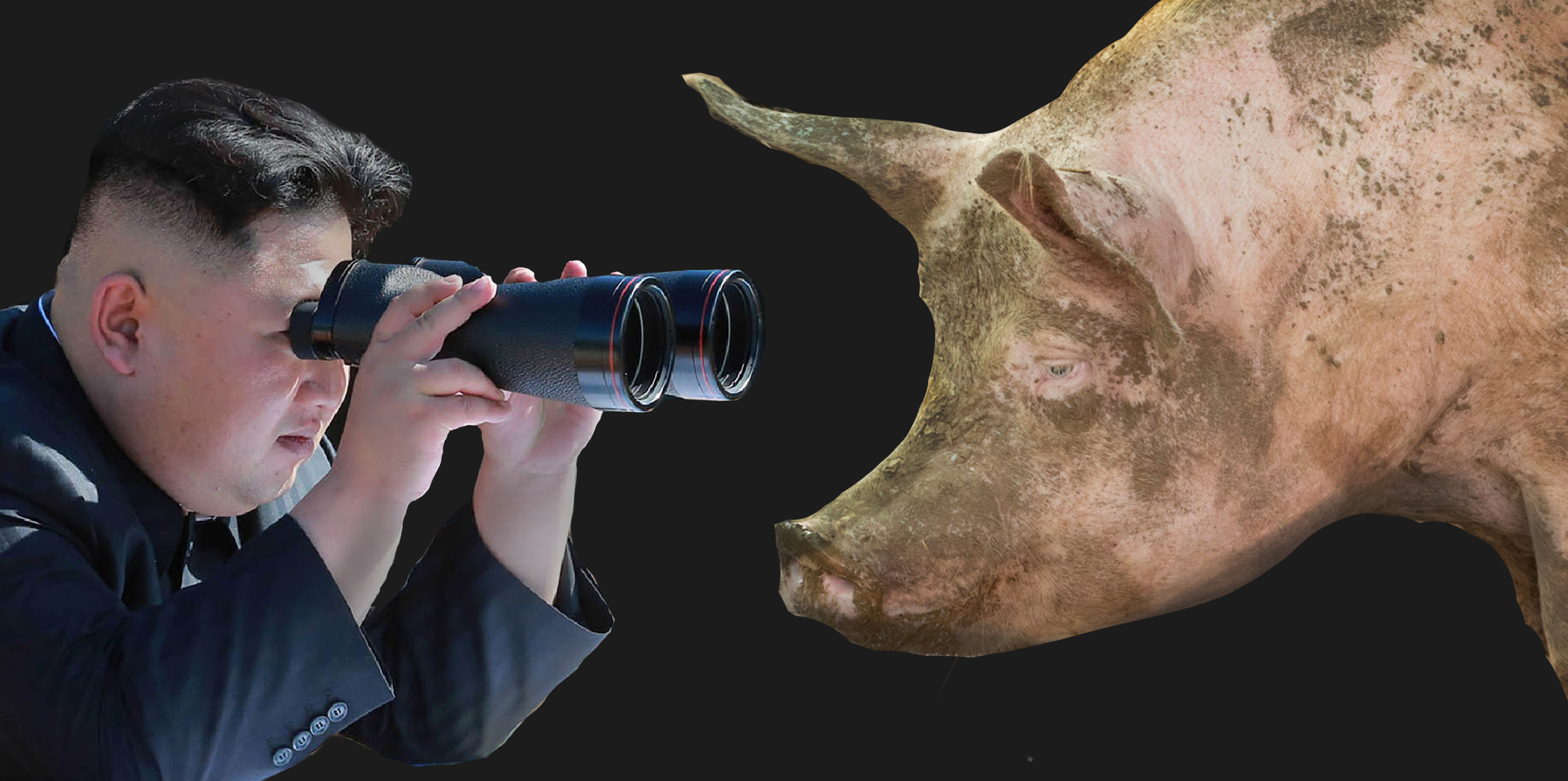Hog waste is scarier than North Korea
One is a clear and present danger


A free daily email with the biggest news stories of the day – and the best features from TheWeek.com
You are now subscribed
Your newsletter sign-up was successful
Our 3-year-old is not much of a meat eater. Given her choice, she would probably subsist entirely on a diet of graham crackers, yogurt, strawberries, and jellybeans. The only way we can get her to eat animal protein is to lie and say that it's actually "sausage," the only meat product in which she has ever taken interest (apart from the inevitable McDonald's chicken nuggets).
Like my toddler daughter, I love sausage. I would gladly have it for breakfast every morning. On the other hand, I would also prefer not to live in a country in which it is possible to drown in a literal river of pig excrement. This horrifying possibility became very real this week in North Carolina, where some 77 lagoons filled with toxic hog waste either overflowed or came close to doing so following record-breaking rains in the wake of ex-Hurricane Florence.
I wish I could say goodness knows what's in there, but it turns out we have a pretty good idea: arsenic, copper, selenium, zinc, cadmium, molybdenum, nickel, lead, iron, manganese, aluminum, boron — you know, the good stuff, now spilled in unknowable quantities into the ground and the water supply. Some of this stuff is added to the pigs' diets intentionally; some of it ends up there by accident and passes through undigested. The waste, which in some parts of the country can be seen from space, eventually leaves the lagoons whether it floods or not, albeit without the treatment applied to human urine and excrement. The measurable results of exposure to this material are as wide ranging as they are horrifying: entire fish populations coming down with hideous red sores and dying out en masse. Years will go by before we have any notion of the effects of the recent spills.
The Week
Escape your echo chamber. Get the facts behind the news, plus analysis from multiple perspectives.

Sign up for The Week's Free Newsletters
From our morning news briefing to a weekly Good News Newsletter, get the best of The Week delivered directly to your inbox.
From our morning news briefing to a weekly Good News Newsletter, get the best of The Week delivered directly to your inbox.
Concerns about hog waste are not some boutique hippie cause célèbre. Nor is the problem something that is only a concern in the case of so-called "extreme weather events." Pigs in North Carolina produce more than 10 billion gallons of waste each year, enough to fill 15,000 Olympic-sized swimming pools with feces. North Carolina, the nation's second largest producer of pork products, banned the creation of new lagoons back in 1999. Since then various schemes have been proposed for reducing and disposing of the existing waste, among them a typically dotty Obama administration-era proposal to create a cap-and-trade market for pig poop. The most recent of these involves creating feces pipelines to power plants, where the waste can be converted into energy, enough in some places to power dozens of thousands of homes. If everything goes as planned, North Carolinian dads of the future will shout at their teenagers: "Turn the lights off, we've got to conserve s--t!"
The problem with most of these schemes is that they do not address the real issue — namely that Americans likely eat far too much meat. There is nothing inherently wrong with eating animals, but meat has become a cheap consumer good, one that we produce in excess of what we can deal with in a safe and sustainable manner. As I write this the only person making any headway who is not a member of PETA is President Trump, whose tariffs have led Chinese authorities to retaliate with import duties of their own that threaten the bottom line of America's largest pork producers. Let's hope he doesn't back down any time soon.
The news about the latest porcine threat against the health and safety of North Carolinians appeared amid the announcement that Kim Jong Un has agreed to dismantle several North Korean missile test sites. This was heartening news for all who welcome an end to nuclear proliferation around the globe. On balance, though, I must say that I am not convinced that any North Korean ICBM would not fall straight down on Pyongyang before it got anywhere near the United States. As far as our own shores are concerned, I am far more worried about pig poop than the porcine dictator and his apparently decreasing supply of rockets. If Kim really wanted to scare me, he would start loading them with pink hog goo.
A free daily email with the biggest news stories of the day – and the best features from TheWeek.com
Matthew Walther is a national correspondent at The Week. His work has also appeared in First Things, The Spectator of London, The Catholic Herald, National Review, and other publications. He is currently writing a biography of the Rev. Montague Summers. He is also a Robert Novak Journalism Fellow.
-
 Political cartoons for February 21
Political cartoons for February 21Cartoons Saturday’s political cartoons include consequences, secrets, and more
-
 Crisis in Cuba: a ‘golden opportunity’ for Washington?
Crisis in Cuba: a ‘golden opportunity’ for Washington?Talking Point The Trump administration is applying the pressure, and with Latin America swinging to the right, Havana is becoming more ‘politically isolated’
-
 5 thoroughly redacted cartoons about Pam Bondi protecting predators
5 thoroughly redacted cartoons about Pam Bondi protecting predatorsCartoons Artists take on the real victim, types of protection, and more
